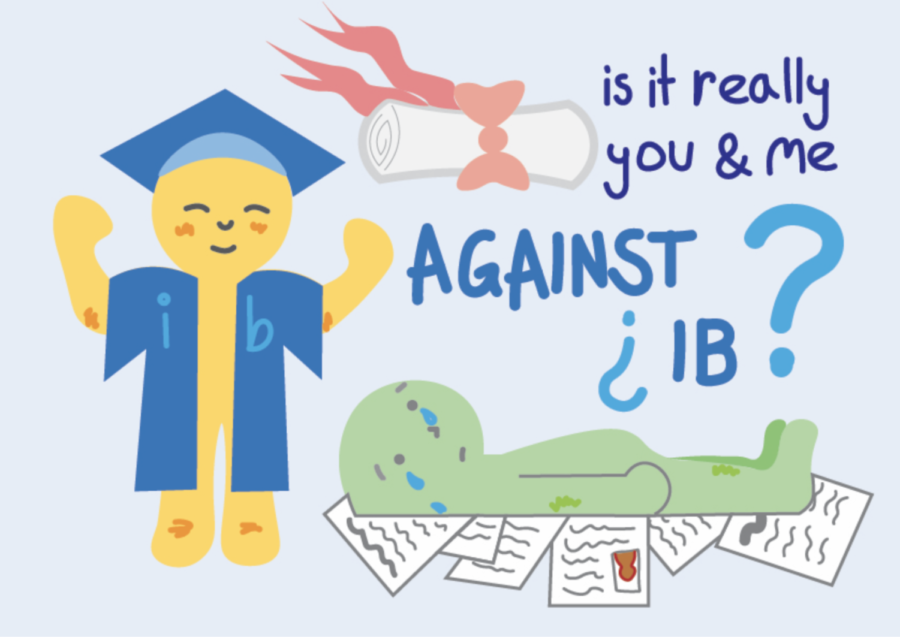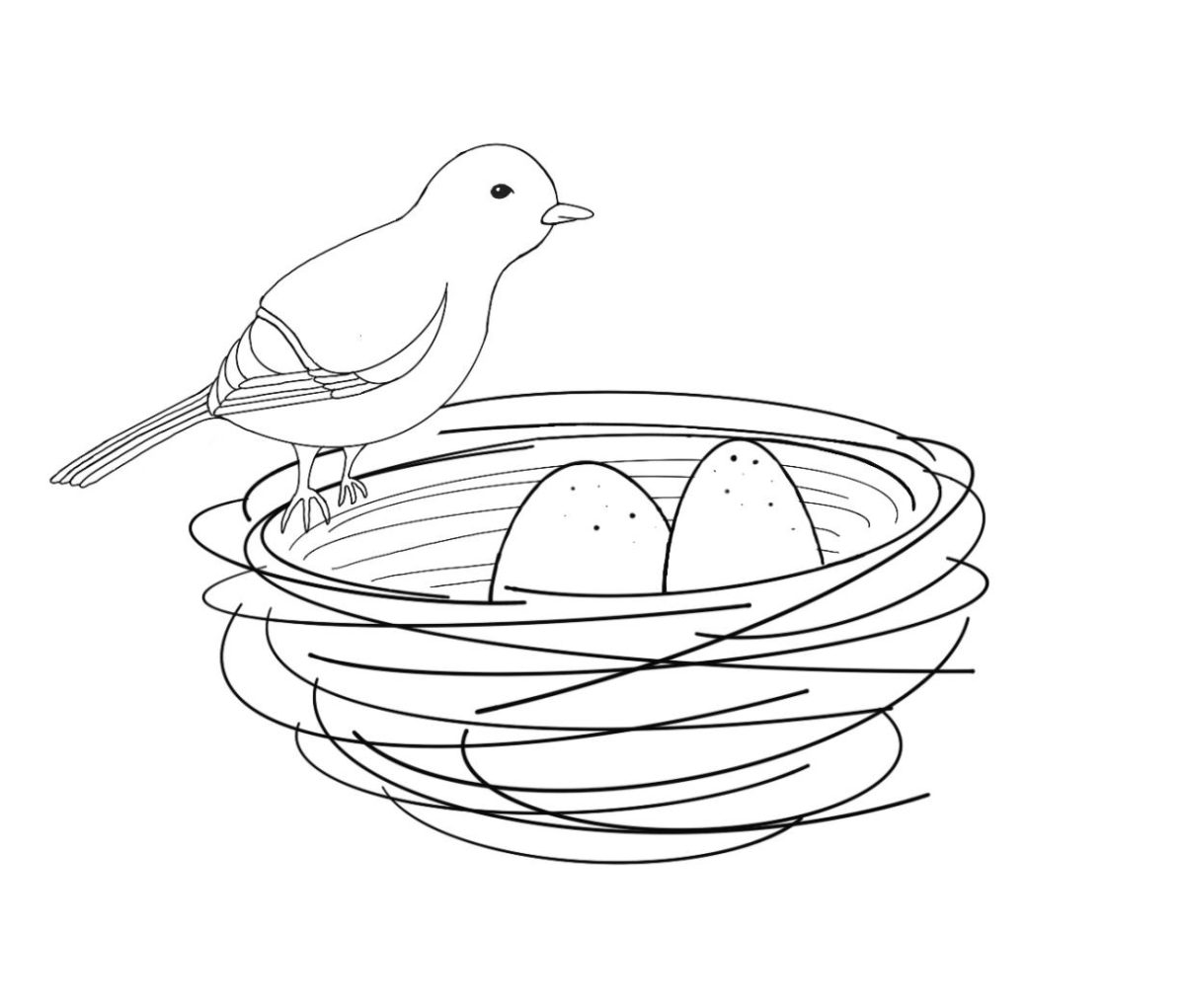Point:
The International Baccalaureate program is known for being a rigorous and academically challenging program that pushes students to dive deeper into their education. However, one of the stand-out elements of the program for those who are in it is the sense of community created by those around them.
Every student in the program chose to be a part of it, so they all have some sort of motivation and desire to succeed and do well in the program. Being constantly surrounded by students who are willing to put in the work to get everything out of the program encourages individuals to learn more, put in more effort, and be their best selves.
Other students in the program can also help individuals with study tips and new ways of understanding things. Everyone learns differently and because there is such a wide variety of people in the program and everyone is motivated to understand the material, there are a plethora of people who can help explain concepts in new ways.
Peers in the program also provide encouragement and a shoulder to cry on. Everyone in the program is going through the same thing at the same time, creating an “all in this together” feeling. Through stressful moments, it can be reassuring to know that other people are going through exactly the same thing. Additionally, this feeling of comradery and the fact that students have most classes with the same people can foster friendships that stand the test of time.
Teachers are also an integral part of the IB support system. Every person involved in the IB program wants success for every student that passes through it. The IB teachers and IB coordinators are there to answer questions and to provide support, reassurance and extra help if necessary. Most understand the pressures and work that goes into each course and act accordingly while still pushing students to reach their full potential. And many teachers are ready and willing to spend extra time with students outside of class to help them understand complex topics.
IB courses also help students develop collaboration and group work skills due to the collaborative nature of the courses. Science classes include group lab projects as a primary part of the class and English and language classes include many group presentations as well. The expectations are higher in IB, placing more pressure on students to perform well during these group projects, making the development of these skills vital. On top of academic content, students learn time management, leadership and communication skills.
The IB exams and projects that come at the end of the year also encourage students to ensure that they fully understand the material. According to the University of Washington’s website, they will give additional college credits to students who received a 4 or higher on the IB exams. The average exam score for Inglemoor High School is 4.95-5.05, meaning that though there is pressure, Inglemoor students are set up for success. The desire to earn a certain grade on the exam also motivates students to improve their studying techniques and learning strategies to help them succeed, all of which is transferable and vital to students’ future success.
The rigorous courses and high workload also prepare students for the high standards of college courses. The extended essay, in particular, is an essay that students who are in the Diploma Program are required to write. It is an excellent opportunity for students to get practice writing a college-level essay in an environment where everyone around them is there to ensure success.
The IB program, whether through the Diploma program or just taking individual courses, pushes and motivates students to be their best while simultaneously providing an uplifting and supportive community. This provides the optimal environment for student growth and success both academically and personally.
Counterpoint:
Despite its many educational benefits, the International Baccalaureate program is notorious for its shortcomings. IB students themselves commit to having a heavier workload and choose to enroll in rigorous courses, but the impact of the program itself is more harmful than simply having a few more assignments.
Expecting hefty assignments such as an intensive 4000-word research essay to be done on students’ time outside of school along with other homework is detrimental to students’ social and personal lives. Of course a heavy workload is expected—given that IB is a rigorous academic program—but it is to the point where it is harmful for students’ mental and social well being.
Such disruptions to students’ personal lives can affect them in many negative ways. A lack of leisure time and socializing can unmotivate students and even cause depression. Mental wellbeing is incredibly important for teenagers, especially since their brains are developing, and excess stress from school can be dangerous.
Noticeably, by senior year, many IB students do not have the motivation to turn in assignments on time or even to study for their important IB tests. According to some IB teachers, that trend has become more prominent this year especially because of the pandemic. In some cases this is due to the fact that the IB curriculum is rigorous from beginning to end, and has strong expectations for students to not only pass, but excel. Even though students committed to dealing with a big workload when they enrolled in the program, by the end of it they often do not have the energy and motivation to keep going.
By the last year, IB students often feel burnt out from the amount of work they have done through the years. However, that lack of motivation isn’t the students’ fault, and it isn’t because of simple laziness. The program itself presents this constant workload with the Extended Essay and CAS experiences, and each individual IB class has its own rigorous assignments and assessments. There isn’t a break from IB, and this wears students down to the point where they lack the motivation to keep going.
The workload is not the only problem in the IB program, though. The program is often praised for being academically competitive and it can inspire students to try harder, but it also creates nearly impossible expectations for them.
Like any other student, IB students are expected to perform well. Since almost everybody in the program feels pressured to perform well, students will often refer to their classmates to see how they are doing. Asking about test scores or grades can make students feel insecure or disappointed in themselves. First, it is challenging to do well on assignments in IB classes anyway, but when your classmates are doing exceptionally well, an average student’s efforts can seem like they are not enough. One could argue that these comparisons motivate students to study harder, but more often than not, they undermine students’ efforts and make them feel out of place in such a competitive environment.
Because of these standards and comparisons between classmates, IB students can feel like an average score on an assignment is equivalent to a fail. This is the case more so in the IB program, because students are being compared on an international stage. Inglemoor’s IB score average is 31-32 out of 45. An IB score is the sum of individual test scores and up to 3 additional core components. It is hard to feel accomplished by simply passing tests or even getting an impressive score of 32 points when, for example, some private schools halfway around the world average 44 IB points.
These are reasons many students drop out of the IB program—the dropout rate at Inglemoor is about 10%, a number that was lower before the pandemic. The things the program takes pride in—academic challenges and competition—are what make it dangerously stressful for some students.
With that, IB is exactly what it claims it is: a rigorous academic program. However instead of accomplishing its goals of creating knowledgeable young people, it often creates unmotivated and burnt out teenagers. What IB doesn’t emphasize is the enormous pressures and expectations it creates for students and just how far it can go with the workload. So despite its advantages, IB isn’t quite worth it.























